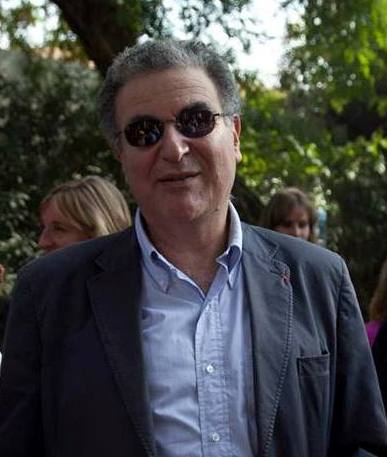As a repository for the rich history of film, the Cinematheque is an important institution. But ought one be worried about their continued relevance in the modern age, where betwixt the distractions of digital technology and the instantaneity – and transience – of social networks, the significance of history and tradition feel under threat? Serge Toubiana, director of Paris’s Cinémathèque Française, sees the changes as positives. “Ten years ago, we had the opportunity to move to a beautiful building, designed by Frank Gehry, in a beautiful area of Paris,” he says. “I thought at the time that the building gives us the opportunity to have all our missions in one place: to program movies, to have educative programs, to have a library because we have a huge archive of films, to have a museum of cinema and to have a space for exhibitions.” And the existence of this space, where audiences can engage with, even discover, the breadth and depth and context of cinema across the ages, this is an important thing? Absolutely, Toubiana replies. He reels off a few of the successful exhibitions and events convened by the Cinematheque in recent years: a joint exhibition of Renoir pere et fils, Pierre-Auguste Renoir the painter and Jean the filmmaker; the fiftieth anniversary restoration of Jean Cocteau’s La Belle et la Bête; a retrospective of American director Tim Burton, which ran for four months last year and sold more than 300 thousand tickets. “People come because they remain curious,” he says.

Toubiana was in Israel last week, a guest of the Tel Aviv Cinematheque, currently celebrating its 40th anniversary. The Cinémathèque Française contributed to festivities with a specially curated series of French cinema, including Maurice Pialat’s Van Gogh and Marcel Carne’s noir classic Quai des Brumes. He also attended the presentation by the French ambassador to Israel, Patrick Maisonnave, of the Legion d’Honneur to Lia Van Leer, the grande dame of Israeli cinema and founder – along with her late husband, Wim – of the Haifa and Jerusalem Cinematheques, the Israel Film Archive and the Jerusalem International Film Festival. Toubiana has also been on the other side of the film business, in a manner of speaking: from the late 1970s and through the 1980s, he was editor of Cahiers du Cinema, the pre-eminent journal of film criticism in the world.
It might be, though, that thinking of critics as belonging to “the other side” may not be the most conducive summation of their role in the ecosystem of cinema. Toubiana, interestingly, does not think that the role of the film critic has been diminished by democratisation of the role via film blogs and the internet. He confesses to being more concerned about who critics perceive as their primary audience. “The language of the film critic has to change,” he suggests. “It has to be more simple, more educative.” Part of the problem, he suggests, is that critics take the importance of film for granted, something that cannot be presumed as a given in the modern age. “The biggest difficult is that the young generation are totally absorbed by machines, computers,” he suggests. “We have to open their minds, to tell them why they have to come back to enjoy cinema of the big screen.” But the problem, he posits, starts with critics who talk and write for the benefit of each other. “Sometimes, when you read a particular newspaper or magazine, it is bizarre. You don’t understand what they say. It is too…meta-language!”
Cinémathèque Française was founded in 1936 by Henry Langlois, an archivist and cinephile who was a key influence on the auteurs who founded the New Wave (Nouvelle Vague) of French Cinema. Langois’ true legacy, Toubiana observes, was to be one of the first to recognise the importance of preserving the heritage of cinema for future generations. “It is our job to present to memory of cinema, and we only have the elements to do so thanks to Langois,” In this respect, new technology is certainly a friend rather than a threat to the work of the Cinémathèque. “We restore movies with digital technology, we will digitalise our entire collection, and we will put it on the internet, to make it accessible for students, journalists, producers…” It is nice to hear about the work of the film preservation and education described in such democratic terms.
Toubiana has more than a passing engagement with Israeli cinema. He has written a monograph on the Israeli auteur Amos Gitai, and sat on the jury of 2007’s DocAviv Film Festival in Tel Aviv. As someone with knowledge of Israeli cinema but not a part of the local industry, how does he perceive its development in recent years, particularly its reception by international audiences? Toubiana is complimentary. “There is a new generation, of courageous men and women who speak about the reality, show the reality in Israel. They have no problems to talk about the difficulties of the country, about Palestinian people, about the Arab citizens of Israel.” The key is the honesty, discomfiting as it might sometimes be, which filmmakers are bringing to their work. “And now in Paris, New York, Los Angeles, Rome, Berlin, everyone who knows about cinema knows that there is a new Israeli cinema now, and we have to take care of it because it is important. We have to take care of it because it is very good news for cinema.”





